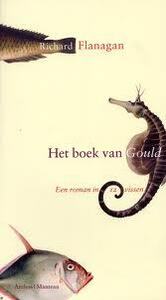Take a photo of a barcode or cover
adventurous
challenging
dark
funny
sad
tense
medium-paced
Strong character development:
Yes
Loveable characters:
Complicated
Diverse cast of characters:
Yes
Flaws of characters a main focus:
Yes
at turns shudderingly gross, at other mesmerisingly wise, this is a story that I don't know how to summarise.
so no blurb for this one, just a few quotes:
" The whites have no law, he told Capois Death, no dreaming. Their way of life made no sense whatsoever. Still, he did not hate them or despise them. They were stupid beyond belief, they had a power, & somehow their stupidity & their powers were, in Tracker Marcks' mind, inextricably connected. But how? he asked Capois Death. How can power & ignorance sleep together? "
" At first the Commandant was unwilling to eat large amounts of butter several times a day, on the foolish grounds that it made him nauseous, but the thinking behind this treatment was scientifick, incomprehensible, & for both these reasons, undeniable. "
" Stories are written as progressive, sentence must buid upon sentence as brick upon brick, yet the beauty of this life in its endless mystery is circular. "
"I should have known why I was there, but in truth, I didn't. To be frank, although I have painted all I know, it's clear that what I know is two parts of bugger-all. "
so no blurb for this one, just a few quotes:
" The whites have no law, he told Capois Death, no dreaming. Their way of life made no sense whatsoever. Still, he did not hate them or despise them. They were stupid beyond belief, they had a power, & somehow their stupidity & their powers were, in Tracker Marcks' mind, inextricably connected. But how? he asked Capois Death. How can power & ignorance sleep together? "
" At first the Commandant was unwilling to eat large amounts of butter several times a day, on the foolish grounds that it made him nauseous, but the thinking behind this treatment was scientifick, incomprehensible, & for both these reasons, undeniable. "
" Stories are written as progressive, sentence must buid upon sentence as brick upon brick, yet the beauty of this life in its endless mystery is circular. "
"I should have known why I was there, but in truth, I didn't. To be frank, although I have painted all I know, it's clear that what I know is two parts of bugger-all. "
"...it would all be mixed up & all clear at the same time, & they would never be able to explain any of it to anybody." A quote from Gould's Book of Fish that is very apropos to the book. The setting is the Sarah Island prison for the worst of the prisoners of Van Diemen's Land (Tasmania) in the early 19th century. From there on the above quote applies!
William Bulow Gould - con-man, rogue and convict in Tasmania's brutal prison system of the 19th century. As the tiny world around him descends into madness, Gould saw the worst of the Van Diemen's Land convict system - a place where outcasts and dreamers were sent. He finds purpose and identity as a fraudulent artist, and slowly loses his mind over the course of his surreal and incredulous incarceration. A classic book of imaginative historical fiction from a Booker Prize winning author.
I loved the writing but this book was just too disjointed for me. Perhaps I'll read it again someday. Having read some other reviews I now realize there is a historical basis for the story.
This is the story of William Gould, a forger and a thief who is sent to Tasmania prison which is ruined by the Commandant - a lunatic tyrant in a gold mask who apparently was a convict himself also.
Through the friendship with Tobias Lempriere - the island surgeon of Sarah Island, Gould starts to paint scientific illustrations of fish, following Darwin's example in another context of course.
With these illustrations, Gould describes the perverse conditions of this prison in the beginning of the 19th century.
However I must confess that this is not an easy book to read, on the contrary.
5* The Narrow Road to the Deep North
3* Gould's Book of Fish: A Novel in Twelve Fish
TR Death of a River Guide
Through the friendship with Tobias Lempriere - the island surgeon of Sarah Island, Gould starts to paint scientific illustrations of fish, following Darwin's example in another context of course.
With these illustrations, Gould describes the perverse conditions of this prison in the beginning of the 19th century.
However I must confess that this is not an easy book to read, on the contrary.
5* The Narrow Road to the Deep North
3* Gould's Book of Fish: A Novel in Twelve Fish
TR Death of a River Guide
adventurous
challenging
funny
medium-paced
Strong character development:
No
Loveable characters:
No
Diverse cast of characters:
Complicated
Flaws of characters a main focus:
Yes
Earlier this year I read Flames and The Rain Heron by Tasmanian author, Robbie Arnott. I loved both books and eagerly signed up to hear Arnott speak at the 2020 Melbourne Writers Festival. In his session Arnott spoke about reading Gould’s Book of Fish (which is set in Arnott’s home state of Tasmania) and thinking “I can’t believe someone is allowed to write a book like this”. That had me intrigued. So I borrowed the audiobook from my local library.
Unfortunately, Gould’s Book of Fish just wasn’t my brand of weird. I found it difficult to follow what was going on most of the time, due to the quite mad, unreliable narrator, William Buelow Gould. I’m not sure I would have made it to the end if I was reading instead of listening.
There were plenty of glorious sentences and witty satire throughout the book. It’s high brow and low brow all at the same time. I’m sure there were plenty more clever comments on colonialism, race relations, history, memory, capitalism and prison culture that went right over my head.
I’m not across the history of Sarah Island or the real life character that inspired Flanagan’s story. Maybe things would have been easier to follow if I’d had that context.
If you want to listen to 11 hours of a crazy convict’s delusions... then this is the audiobook for you!
I'm glad this book inspired Robbie Arnott to write his own strange Tasmanian novels.
This book took me ages to read simply cause of the language and the way it was written. I both loved it and loathed it in equal measure. It is complex but funny. I am not sure I actually understood all of it.
Britain had some whack ideas. Remember that time they colonized an entire continent with convicts? That was whack.
Gould’s Book of Fish is the epistolary adventure of William Gould, a convict imprisoned on Sarah Island. Somewhere along the way he picked up enough painting skills to become an artist, and he starts painting fish for the island’s science-and-status–obsessed Surgeon instead of working on the chain gang.
I enjoy books (The Luminaries comes to mind) set in this frontier period of the colonization of Australia and New Zealand. Like The Luminaries, this book has a somewhat pretentious structure and style as Flanagan attempts to use Billy Gould to plumb the depths of human suffering and soul-searching. Each chapter is headlined by a particular fish from this book that Gould is working on, and the fish becomes a metaphor for the philosophical ramblings of that instalment in Gould’s life.
Basically this book is an account of Gould’s suffering on Sarah Island, and of the various strange and nonsensical happenings that he witnesses there. Since we’re being told this all from Gould’s perspective, there are some serious unreliable narrator issues here. So it’s not possible to take the events of the story at face value, to say, “this happened,” and use that certainty as the metric by which we can judge Gould’s rambling.
Case in point: the characters of this book aren’t so much people as they are examples of types of excess that afflict the human experience. (This is confirmed, in the most postmodern of ways, by the “afterword” note.) Each character is a facet of Gould’s madness—a madness that might have been exacerbated by his imprisonment but maybe has lurked there all along, lurks beneath all of us.
Two things that I loved about this book.
Firstly, Gould’s narrative voice is rich. It’s one thing to write a book set in a historical period and another thing to write with the voice of someone from that period. Through diction, sentence structure, and punctuation, Flanagan makes Gould’s voice come alive. This makes the book entertaining despite the darkness inherent in Gould’s experiences.
Secondly, just when you think you’ve seen all Flanagan has to offer, he manages to change things up and deliver an even crazier situation. He certainly has imagination, and it shows on every page here. This is a very creative book, and that made it more enjoyable.
So what stops me from singing more than dull praises? Is it the weird ending? The bizarre use of a frame story that Flanagan never returns to (except with one passing reference)? Or the constant parade of deaths, either real or metaphorical, without much in the way of happiness? Gould’s is a very Hobbesian view, mixed in with a certain amount of postmodern irony. Humans are just other animals, full of natural and atavistic urges. We pretend we suppress those urges, but that’s a lie. And that’s apparently the source of our unhappiness.
This is a book that tries to be deep, and I suppose if you are willing to spend the time to study and analyze and prod it, you’ll find those depths. Maybe I’m just growing impatient in my old age. Maybe I’m losing my enjoyment of subtext. Whatever the reason, Gould’s Book of Fish was an adequate way to spend my time. But neither Gould’s voice nor Flanagan’s capacity for storytelling surprises could quite compensate for the almost desultory atmosphere that pervades the text. Maybe this will be the intensely philosophical, brooding text that you have been waiting for—I can’t discount that possibility. It just didn’t speak to me. I know this because I’m not particularly proud of the quality of this review. I could have spent more time talking more deeply about the philosophical underpinnings of this book. I just don’t care enough about it to do so. I’m going to go buy tea now instead.

Gould’s Book of Fish is the epistolary adventure of William Gould, a convict imprisoned on Sarah Island. Somewhere along the way he picked up enough painting skills to become an artist, and he starts painting fish for the island’s science-and-status–obsessed Surgeon instead of working on the chain gang.
I enjoy books (The Luminaries comes to mind) set in this frontier period of the colonization of Australia and New Zealand. Like The Luminaries, this book has a somewhat pretentious structure and style as Flanagan attempts to use Billy Gould to plumb the depths of human suffering and soul-searching. Each chapter is headlined by a particular fish from this book that Gould is working on, and the fish becomes a metaphor for the philosophical ramblings of that instalment in Gould’s life.
Basically this book is an account of Gould’s suffering on Sarah Island, and of the various strange and nonsensical happenings that he witnesses there. Since we’re being told this all from Gould’s perspective, there are some serious unreliable narrator issues here. So it’s not possible to take the events of the story at face value, to say, “this happened,” and use that certainty as the metric by which we can judge Gould’s rambling.
Case in point: the characters of this book aren’t so much people as they are examples of types of excess that afflict the human experience. (This is confirmed, in the most postmodern of ways, by the “afterword” note.) Each character is a facet of Gould’s madness—a madness that might have been exacerbated by his imprisonment but maybe has lurked there all along, lurks beneath all of us.
Two things that I loved about this book.
Firstly, Gould’s narrative voice is rich. It’s one thing to write a book set in a historical period and another thing to write with the voice of someone from that period. Through diction, sentence structure, and punctuation, Flanagan makes Gould’s voice come alive. This makes the book entertaining despite the darkness inherent in Gould’s experiences.
Secondly, just when you think you’ve seen all Flanagan has to offer, he manages to change things up and deliver an even crazier situation. He certainly has imagination, and it shows on every page here. This is a very creative book, and that made it more enjoyable.
So what stops me from singing more than dull praises? Is it the weird ending? The bizarre use of a frame story that Flanagan never returns to (except with one passing reference)? Or the constant parade of deaths, either real or metaphorical, without much in the way of happiness? Gould’s is a very Hobbesian view, mixed in with a certain amount of postmodern irony. Humans are just other animals, full of natural and atavistic urges. We pretend we suppress those urges, but that’s a lie. And that’s apparently the source of our unhappiness.
This is a book that tries to be deep, and I suppose if you are willing to spend the time to study and analyze and prod it, you’ll find those depths. Maybe I’m just growing impatient in my old age. Maybe I’m losing my enjoyment of subtext. Whatever the reason, Gould’s Book of Fish was an adequate way to spend my time. But neither Gould’s voice nor Flanagan’s capacity for storytelling surprises could quite compensate for the almost desultory atmosphere that pervades the text. Maybe this will be the intensely philosophical, brooding text that you have been waiting for—I can’t discount that possibility. It just didn’t speak to me. I know this because I’m not particularly proud of the quality of this review. I could have spent more time talking more deeply about the philosophical underpinnings of this book. I just don’t care enough about it to do so. I’m going to go buy tea now instead.




